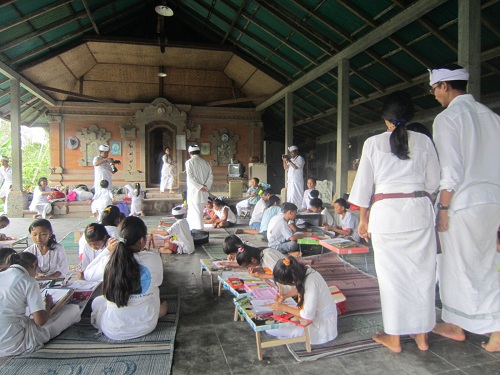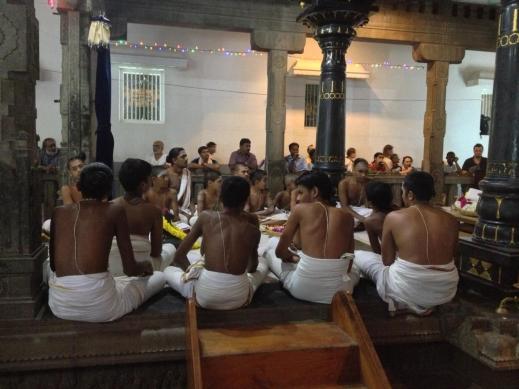Bali has a charm that is very unique and emanates. Even from every corner of the island, which is also often referred as the island of thousand temples. Bali has a unique culture and diverse traditions, it included the beauty of nature and the majority of its population is Hindus. Hindus is one of the recognized religionsin Indonesia other than Islam, Catholic, Protestant Christians, and Buddhists. Like other religions, Hindus also has its own place to deepen their religious knowledge.The place is called Pasraman.

Pasraman word comes from the word “asrama” (often written and read ashram), which means the venue for teaching and learning or education. Pasraman educational emphasis on self-discipline, develop good moral values and traits are industrious, hard-working, restraint of lust and love to help others. Pasraman evolving concept now adopted from ancient Hindu system of education in India. Ashram System describes the close relationship between the teacher (Acharya) with his students, like in a family.

The education process in pasraman from the past that still persists to this day is also known by other terms that parampara, in Java and in Bali known as padepokan or aguron-guron. Today in India there are thousands pasraman cared for by teachers of spirituality, even the branches of these institutions have evolved in Europe and in Indonesia. Now in Indonesia has emerged and developed many pasraman to anticipate the various problems faced by Hindus, is the main problem and the Hindu religious education outside Bali. Due to the limitations of teachers Hindu religion, it is not obtained in the schools in general, the students concerned can follow Hindu religious education through this pasraman institutions. Outside Bali pasraman education in general take place in the temple compound.
Hindu religious education is expected to build awareness about life, which is aware that to live is to find food, to get a sense of security, acceptable to the public, to get the status of honor and live up to the meaning of life according to Hindu religious education functions, namely:
- Planting the values of the Hindu doctrine that can be used as guidelines for living in achieving happiness in life (Moksartham jagadhita).
- Development and Bhakti Sradha presented to Hyang Widhi (God).
- Teaching about religious sciences in general.
- Preparation of mental attitude abilities of students who wish to pursue higher studies.
- Prepare the maturity and power of resistance of students in adapting themselves to the physical and social environment.
- Repair faults, weaknesses learners in belief and practice of religious teachings in everyday life.
- Prevention learners of negative things caused by promiscuity outside world.

